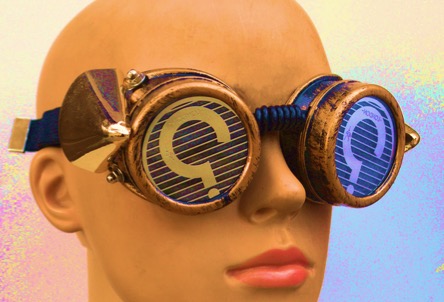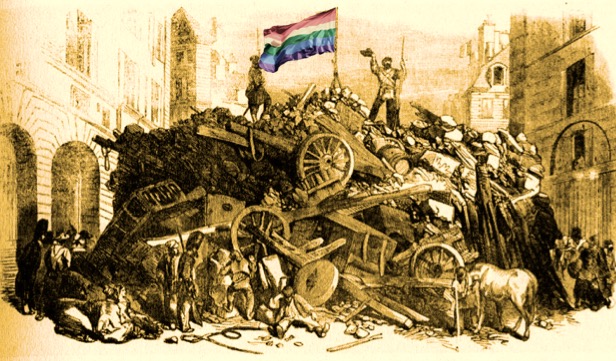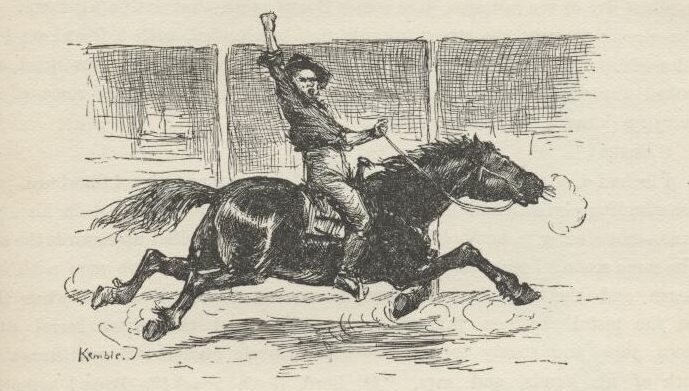A Deal With God

Running back to the ‘80s.
Familiar Things
After weeks of listening to my children singing “Running Up That Hill (A Deal With God)” and my daughter prodding me, I finally watched the new season of Gen X nostalgia fest Stranger Things, which prominently features the 1985 Kate Bush song.
The new season is set in 1986, which means I am younger than the teenage characters on the show, but still old enough to remember the world they inhabit. I only saw bits and pieces of the previous seasons, so my daughter had me watch all the past season recaps before we dove in. My older kids are fascinated by the show’s eighties vibe and use me as their historical fact checker. I’m like one of those 90-year-old Civil War veterans interviewed about the war. “I was there, sonny boy. Yep, we really did go to the video rental store every single weekend. We had to be kind and rewind!”
My daughter also makes me factcheck the costumes. I can almost guarantee I owned the little rainbow-and-shooting-star earrings Lady Applejack wears in the Dungeons and Dragons scene. Of course, the costumes aren’t quite right—too much acid wash, a little too wacky—but watching the high school scenes made me remember what it was like to go to school when no one had a phone. No one texting each other. No one taking selfies—not even the obligatory blonde mean girl. When I saw that character wearing white Keds with scrunchy socks, it sent me right back to seventh grade. I assume the character also must drive a white convertible VW Cabriolet Rabbit, like every other older girl at my school did.
I started junior high as a normie prep wearing oversize sweaters from The Limited, dressing like the good-girl character Nancy Wheeler, but by senior year I had rebelled and become more Eddie Munson. Yes, I owned a black leather motorcycle jacket, and it had been signed by at least a few members of Guns N’ Roses, whom my fellow high school rebels and I would run into late at night at Canter’s Deli on Fairfax Avenue. (That’s where you went after going out in L.A. in those days, and we went out a lot.) I never got a white VW Cabriolet Rabbit, so we cruised through town in my mother’s minivan. These days, I drive my own minivan. Dreams really do come true, kids.
The funny thing is that the Duffer brothers, the real-life sibling team who created Stranger Things, were born in 1984. That’s totally cheating! They were only six when the eighties ended. They’re millennials, for Pete’s sake! So why not set their show in an era they’re more familiar with, like the nineties? Wouldn’t that have worked just as well?
Or: could it be there is something profoundly unique and magical about the seven or eight years of peak 1980s pop culture?
Peak America
For a “forgotten” generation, it’s funny how Generation X’s teenage pop culture continues to reign supreme. Of course, we were just the target audience; we didn’t create most of it ourselves. Our boomer parents made the movies. John Hughes, Cameron Crowe, Bill Murray, Ivan Reitman, Steven Spielberg, Eddie Murphy, Tom Cruise, and MTV delivered the goods, and we happily wallowed in it and claimed it as our own.
When I peruse the list of movies released in 1984, for example, I can tell you which theater in Westwood I saw each one in. And we saw almost all of them. Maybe that’s why the decade is such rich fodder for contemporary screenwriters: it was the last time American teenagers enjoyed such a wealth of shared cultural language. There were no “haters”; we all liked pretty much everything. Were we that easy to please? No—there is a reason the movies have lasted this long. They were actually funny. Actually entertaining. Actually crowd pleasing.
This formerly plentiful, now rare quality, which we used to call “good,” barely exists in entertainment anymore. Marvel movies are garbage and everyone knows it. The new Lord of the Rings series on Amazon looks like it will be yet another diversity Olympics where black trolls, gay elves, and bisexual Hobbit single mothers with anxiety disorders must band together to defeat the last blonde straight cis white male in Middle Earth (Sauron, naturally). I watched a reporter ask one of the cast members what quality from Middle Earth she and the other actors most connected with. “Empathy,” she said. “Compassion.”
I’m surprised she didn’t say “mindfulness” and “self-care.” The series has not launched yet, but it is sure to thrill fans of The Last Jedi and the all-girl Ghostbusters reboot.
In the summer of 2022, there was a brief throwback to the thrill of good old-fashioned American movie making. My generation loaned America a character we propelled to the stratosphere (you’re welcome), and you got to enjoy the wholesome romp that is Top Gun: Maverick. Not a Pride flag or unnecessary trans storyline for miles around!
The Piggyback
The Duffer Brothers have mined a deep vein of Gen X cultural heritage for their hit show, but I think it’s not just the pop references that do it for us. It is the quality of innocence and wholesomeness, even in the older teenage characters. The kids may be getting mind-flayed, but not by TikTok. None of the characters questions their gender identity (which is historically accurate, since trans teenagers were not a thing until five minutes ago). No one is OD’ing on fentanyl or popping pills like the demonic teens on Euphoria. No one is watching porn on their phones. The Stranger Things kids, like the kids in the John Hughes teenage triumvirate (Sixteen Candles, The Breakfast Club, and Pretty in Pink), operate in a PG world, and that works just fine for an audience probably more used to triple-X content. Yes, there’s Phoebe Cates in Fast Times, and Rebecca De Mornay in Risky Business, but they’re still tame compared to what Gen Z teens are exposed to.
This quality of wholesome teenage innocence is the magic ingredient, I would argue. The 1980s were the last decade before America decided to pimp out its teenagers and get them hooked on hardcore porn and toxic social media. Maybe this is also the throwback allure of Lana Del Rey, who sings about heterosexual romance without fear of cancellation by the intersectionality police.
But perhaps the most wholesome—and realistic—aspect of the show is its colorblindness. It’s incredible not to hear any characters talk about race. The “black friend” and his little sister are not treated like tokens or diversity hires; they are simply treated like kids with interests that transcend their racial identities. Imagine! This is actually what things were like in the eighties; no one cared what color you were, as long as you were cool. The real bias was always against the nerds—and here again, the show is historically spot-on. Nerd hate was a real thing!
*Spoiler Alert*
“The Piggyback” is the name of the final episode of Stranger Things season 4 and involves a character telekinetically entering another’s mind and fighting the villain virtually there (yeah, I didn’t really understand it either).
But if we hope to win the looming culture war, we need to do likewise. We need to piggyback on the qualities that made the best of 1980s pop culture into enduring American classics. We need to tap into the minds of our remaining few Generation X veterans, who still wander the scarred cultural battlefields where they last experienced their glorious triumphs. We need to fan the fumes of that decade’s lore and build an inferno of hot cultural touchstones that will take down the trash content stinking up your children’s screens.
We need new John Hugheses. I am working on a project in this vein, but I can’t do it alone. We can’t go back to the future, but we can go forward and bring the best qualities of the past with us. Let’s do this.
To paraphrase Joel’s Princeton recruiter in Risky Business, America can still use a generation like X.
The American Mind presents a range of perspectives. Views are writers’ own and do not necessarily represent those of The Claremont Institute.
The American Mind is a publication of the Claremont Institute, a non-profit 501(c)(3) organization, dedicated to restoring the principles of the American Founding to their rightful, preeminent authority in our national life. Interested in supporting our work? Gifts to the Claremont Institute are tax-deductible.
This is where it gets bizarre.
The fight over Chick-fil-A makes it plain.
They are as clueless as the ancien régime.
Conserve your spine or lose it all.
The hateful arrogance of our ruling class is an established fact—proceed accordingly.






